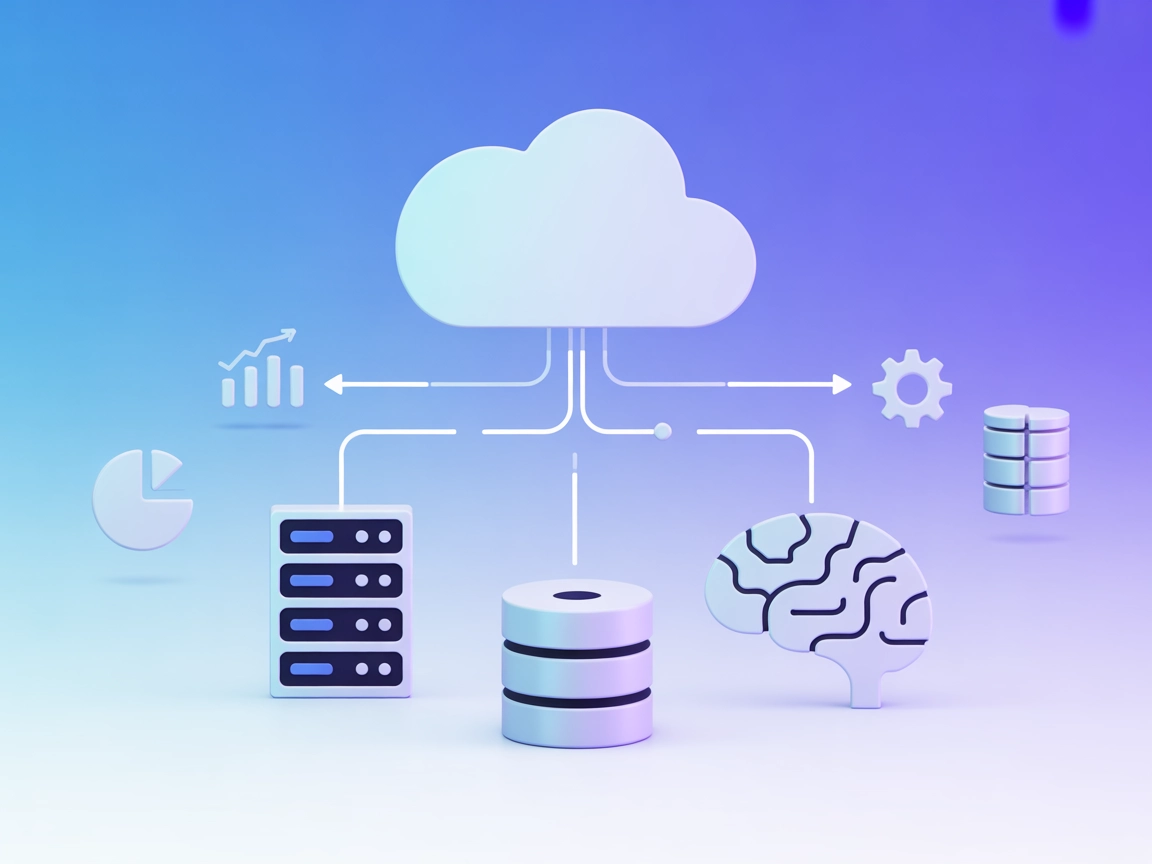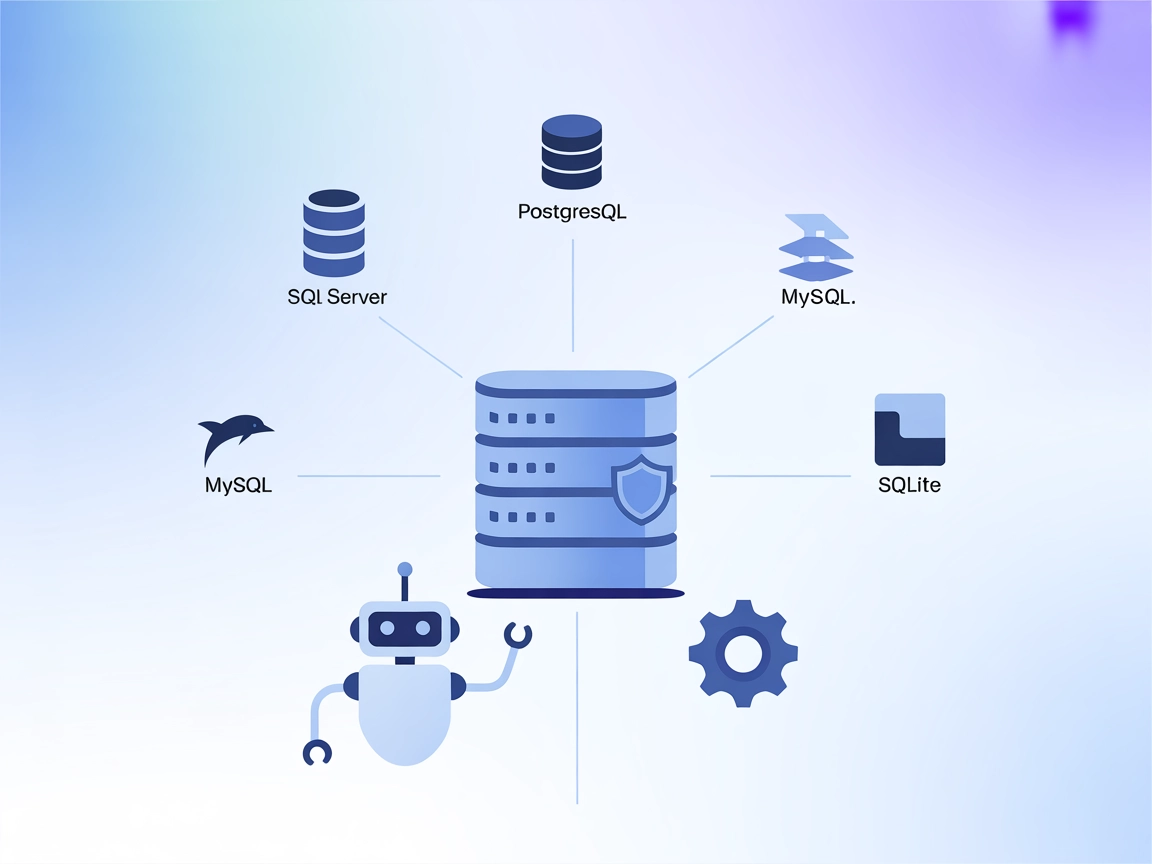
Azure MCP Server Integration
The Azure MCP Server enables seamless integration between AI agents and Azure's cloud ecosystem, allowing AI-powered automation, resource management, and workfl...

Connect FlowHunt to Azure Data Explorer for powerful, secure, and automated data exploration, KQL query execution, and schema management—directly within your AI workflows.
FlowHunt provides an additional security layer between your internal systems and AI tools, giving you granular control over which tools are accessible from your MCP servers. MCP servers hosted in our infrastructure can be seamlessly integrated with FlowHunt's chatbot as well as popular AI platforms like ChatGPT, Claude, and various AI editors.
The Azure Data Explorer (ADX) MCP Server is a Model Context Protocol (MCP) server that enables AI assistants to seamlessly connect with Azure Data Explorer/Eventhouse clusters and databases. Through standardized MCP interfaces, it empowers AI tools and agents to execute KQL (Kusto Query Language) queries, explore database resources, retrieve table schemas, sample data, and access table statistics. The server supports interactive tools and authentication via Azure credentials, making it possible to securely manage and analyze large-scale data directly from AI-driven workflows. This integration enhances developer productivity by automating data exploration, querying, and management within Azure Data Explorer environments.
No explicit prompt templates are mentioned in the repository.
{
"mcpServers": {
"adx-mcp": {
"command": "npx",
"args": ["@adx/mcp-server@latest"]
}
}
}
{
"mcpServers": {
"adx-mcp": {
"command": "npx",
"args": ["@adx/mcp-server@latest"],
"env": {
"ADX_CLUSTER_URL": "https://yourcluster.region.kusto.windows.net",
"ADX_DATABASE": "your_database"
},
"inputs": {}
}
}
}
{
"mcpServers": {
"adx-mcp": {
"command": "npx",
"args": ["@adx/mcp-server@latest"]
}
}
}
{
"mcpServers": {
"adx-mcp": {
"command": "npx",
"args": ["@adx/mcp-server@latest"],
"env": {
"ADX_CLUSTER_URL": "https://yourcluster.region.kusto.windows.net",
"ADX_DATABASE": "your_database"
},
"inputs": {}
}
}
}
{
"mcpServers": {
"adx-mcp": {
"command": "npx",
"args": ["@adx/mcp-server@latest"]
}
}
}
{
"mcpServers": {
"adx-mcp": {
"command": "npx",
"args": ["@adx/mcp-server@latest"],
"env": {
"ADX_CLUSTER_URL": "https://yourcluster.region.kusto.windows.net",
"ADX_DATABASE": "your_database"
},
"inputs": {}
}
}
}
{
"mcpServers": {
"adx-mcp": {
"command": "npx",
"args": ["@adx/mcp-server@latest"]
}
}
}
{
"mcpServers": {
"adx-mcp": {
"command": "npx",
"args": ["@adx/mcp-server@latest"],
"env": {
"ADX_CLUSTER_URL": "https://yourcluster.region.kusto.windows.net",
"ADX_DATABASE": "your_database"
},
"inputs": {}
}
}
}
Using MCP in FlowHunt
To integrate MCP servers into your FlowHunt workflow, start by adding the MCP component to your flow and connecting it to your AI agent:

Click on the MCP component to open the configuration panel. In the system MCP configuration section, insert your MCP server details using this JSON format:
{
"adx-mcp": {
"transport": "streamable_http",
"url": "https://yourmcpserver.example/pathtothemcp/url"
}
}
Once configured, the AI agent is now able to use this MCP as a tool with access to all its functions and capabilities. Remember to change “adx-mcp” to whatever the actual name of your MCP server is and replace the URL with your own MCP server URL.
| Section | Availability | Details/Notes |
|---|---|---|
| Overview | ✅ | |
| List of Prompts | ⛔ | No prompt templates found |
| List of Resources | ✅ | Tables, schema, sampling, statistics |
| List of Tools | ✅ | KQL query, list tables, schema, sample, statistics |
| Securing API Keys | ✅ | .env file and environment variables supported |
| Sampling Support (less important in evaluation) | ✅ | Sampling of table data is supported |
Based on the information provided and its completeness, this MCP server rates around 7/10. It covers all major MCP requirements for Azure Data Explorer, but lacks explicit prompt templates and details about roots support.
| Has a LICENSE | ✅ (MIT) |
|---|---|
| Has at least one tool | ✅ |
| Number of Forks | 20 |
| Number of Stars | 42 |
It’s a Model Context Protocol server that connects FlowHunt and other AI tools to Azure Data Explorer. It enables secure, programmatic access to database resources, KQL query execution, schema exploration, and data sampling—directly from AI workflows.
You can list tables, view table schemas, sample data, execute KQL queries, and fetch table statistics. This allows for automated data management, exploration, and analysis inside your AI flows.
Use environment variables in your MCP server configuration to securely store your ADX cluster URL and database name. Never hardcode sensitive keys directly into your configuration files.
Typical use cases include automated database management, interactive data analysis, enabling AI agents to explore and summarize data, integrating data checks into DevOps pipelines, and ensuring secure, compliant access to enterprise data.
Yes, you can execute KQL queries directly against your Azure Data Explorer database, making it ideal for advanced analytics and real-time data exploration.
Supercharge your AI workflows with direct, secure access to Azure Data Explorer. Automate database queries, schema management, and data exploration using the ADX MCP Server.

The Azure MCP Server enables seamless integration between AI agents and Azure's cloud ecosystem, allowing AI-powered automation, resource management, and workfl...

The MSSQL MCP Server connects AI assistants with Microsoft SQL Server databases, enabling advanced data operations, business intelligence, and workflow automati...

The MCP Database Server enables secure, programmatic access to popular databases like SQLite, SQL Server, PostgreSQL, and MySQL for AI assistants and automation...
Cookie Consent
We use cookies to enhance your browsing experience and analyze our traffic. See our privacy policy.